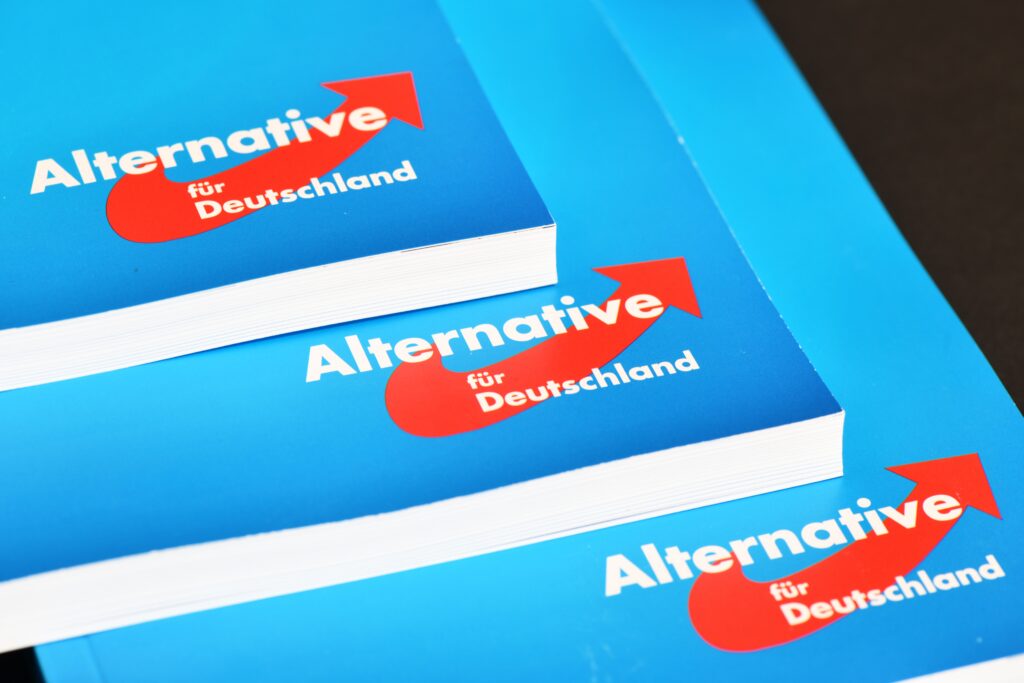During a visit to Munich, U.S. Vice President JD Vance sparked headlines by meeting Alice Weidel, leader of Germany’s far-right Alternative for Germany (AfD) party. His decision to skip a scheduled meeting with German Chancellor Olaf Scholz drew widespread attention, especially since the visit took place just nine days before Germany’s federal elections.
Alice Weidel, co-leader of the AfD and a chancellor candidate, has become a controversial figure in German politics. The AfD, which has faced rejection from most mainstream political groups in Germany for its far-right views, now enjoys significant support, polling in second place with around 20% backing.
A Strong Critique of European Policies
Vance took the opportunity at the Munich Security Conference to criticize European democratic policies. He particularly took issue with the “firewalls” German parties have put up to block the AfD from joining coalition governments.
“From our perspective across the Atlantic, it looks like entrenched interests are hiding behind terms like misinformation and disinformation,” Vance said. He argued that these terms serve to suppress alternative views, weakening democracy.
German Officials Respond Strongly
Vance’s remarks drew a quick and strong response from German officials. Defence Minister Boris Pistorius condemned the comments as “unacceptable,” pointing out that comparing European policies to authoritarian regimes misrepresents democracy in Europe.
“Democracy must protect itself from extremists who aim to undermine it,” Pistorius said. He stressed that while Germany allows diverse opinions, it does not legitimize extremist parties like the AfD by merely acknowledging their existence.
Chancellor Olaf Scholz also defended Germany’s political stance on social media. He highlighted the importance of fighting far-right extremism and reiterated the country’s position on excluding extremist parties from coalition talks. “The lessons of Nazism have led democratic parties in Germany to maintain a shared firewall against extreme right-wing groups,” Scholz wrote.
Bavarian Governor Markus Söder also supported the decision to exclude the AfD. “We respect diverse opinions but reserve the right to decide our coalition partners,” he explained. This position reflects a broader consensus among German politicians who believe the AfD’s ideology contradicts the core values of democracy.
Immigration Policies Spark Divisions
Vance also criticized Europe’s immigration policies, accusing leaders of opening the “floodgates to millions of unvetted immigrants.” Norwegian Prime Minister Jonas Gahr Støre rejected this critique, explaining that Europe’s policies have been shaped by humanitarian crises, such as the war in Ukraine.
“He speaks as if we’re ignoring immigration concerns,” Gahr Støre remarked. “Controlling borders is a key focus for every nation, but we must also address urgent humanitarian needs.”
Vance’s meeting with Weidel was not his only interaction during the trip. He also met with German President Frank-Walter Steinmeier and opposition leader Friedrich Merz. However, despite being in Germany for several days, Vance chose not to engage with Chancellor Scholz, opting instead to meet him earlier in Paris. His choice to skip the meeting with Scholz has sparked speculation about the nature of his political alignment.
Vance closed his visit by doubling down on his views. “Democracy is built on the principle that the voice of the people matters. Firewalls have no place in this process,” he declared.
The AfD’s Rising Influence
Vance’s meeting with Weidel highlights the growing influence of the AfD in Germany’s political scene. Although most mainstream politicians reject the party, the AfD’s increasing support cannot be ignored. Currently polling second behind Scholz’s Social Democratic Party (SPD), the AfD is gaining ground in a political landscape once dominated by traditional parties.
Weidel, who has met with controversial leaders like Hungarian Prime Minister Viktor Orbán, is using these international connections to increase the AfD’s global profile. Orbán, known for his right-wing populist policies, has expressed support for Weidel and her party. Their partnership signals a broader right-wing alliance emerging across Europe.
Vance’s meeting with Weidel suggests that he is aligning with this global far-right bloc, which includes leaders like Orbán, Italy’s Prime Minister Giorgia Meloni, and others. This visit could signal a larger effort by Vance and his allies to strengthen ties with far-right parties across Europe, with potential consequences for U.S.-European relations.
The consequences of Vance’s visit are still unfolding. His remarks have stirred significant debate, especially as Germany approaches its federal elections. As political tensions continue to rise, the role of the AfD in shaping the country’s future remains a key issue.
Vance’s decision to align with Weidel while avoiding Scholz has added fuel to the fire. Observers, both in Europe and the U.S., will be watching closely to see how this situation develops in the weeks leading up to the election.
For more political analysis and updates, visit Financial Mirror.
